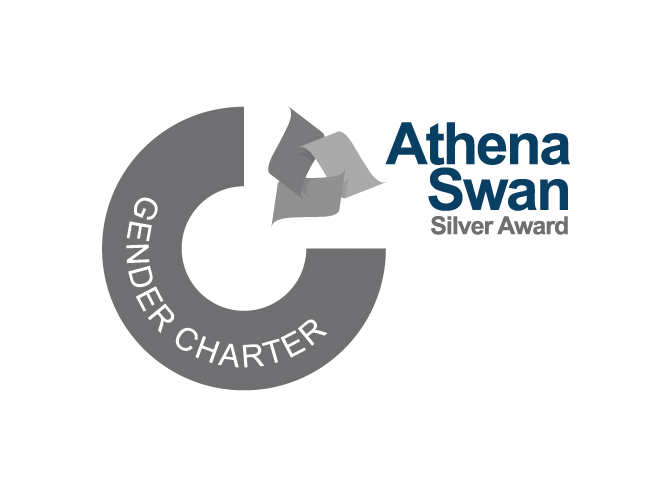You are here
- Home
- Research
- Research groups
- Statistics
- Bayesian Statistics
- Elicitation of prior distributions
Elicitation of prior distributions
This site provides links to Prior Elicitation Graphical Software (PEGS) for quantifying expert opinion as a prior distribution.
Computer firewalls can make it difficult to download executable files. For this reason each program is given in four forms – hopefully you will be able to access at least one of them. The forms are:
- A .jar file (open with Java)
- A windows executable file (firewalls typically block this).
- A windows executable file with its extension changed from .exe to .exd. This file should be saved to your computer and its extension changed back to .exe so that it can be run.
- A windows executable file saved as win.zip file. Save the file to your computer and then unzip it – it has been encrypted with a password. (Currently you should be able to download this form.
The software is written in Java and is distributed under the GNU General Public License.
The software outputs prior distributions in a format suitable for use in the Bayesian software WinBUGS, available from http://www.mrc-bsu.cam.ac.uk/bugs/
The output is also given in R/S-plus format. If you need to download R it is available at http://www.r-project.org/.
If you find any bugs please let us know, likewise suggestions for improvement.
For more information please contact Fadlalla Elfadaly or Paul Garthwaite.
The software provides elicitation methods for two different applications. These applications and papers underlying the methods are:
I. Generalized Linear Models
- Elfadaly, F. G. and Garthwaite, P. H. (2015). Eliciting Prior Distributions for Extra Parameters in Some Generalized Linear Models. Statistical Modelling: An International Journal, 15, 345-365.
- Elfadaly, F. G. and Garthwaite, P. H. (2017). Eliciting Covariance Matrices for Correlated Coefficients in Generalized Linear and Piecewise-linear Models. In preparation.
- Garthwaite, P. H., Al-Awadhi, S. A., Elfadaly, F. G., and Jenkinson, D. J. (2013). Prior distribution elicitation for generalized linear and piecewise-linear models. Journal of Applied Statistics, vol. 40, pp. 59-75.
Application of the methods to logistic regression is reported in:
- Al-Awadhi, S. A. and Garthwaite, P. H. (2006). Quantifying expert opinion for modelling fauna habitat distributions. Computational Statistics, vol. 21, pp. 121-140.
- Garthwaite, P. H., Chilcott, J. B., Jenkinson, D. J., and Tappenden, P. (2008). Use of expert knowledge in evaluating costs and benefits of alternative service provisions: A case study. International Journal of Technology Assessment in Health Care, vol. 24, pp. 350-357.
II. Multinomial Models for Categorical Data
- Elfadaly, F. G. and Garthwaite, P. H. (2013). Eliciting Dirichlet and Connor–Mosimann Prior Distributions for Multinomial Models. TEST, 628-646.
- Elfadaly, F. G. and Garthwaite, P. H. (2017). Eliciting Dirichlet and Gaussian Copula Prior Distributions for Multinomial Models. Statistics and Computing, 27, 449-467.
- Elfadaly, F. G. and Garthwaite, P. H. (2018). On Quantifying Expert Opinion about Multinomial Models that Contain Covariates. Submitted for publication.
An overview of elicitation methods and software is available as a powerpoint presentation.
I. Generalized Linear Models
These are two main programs, PEGS-GLM and PEGS-GLM2 (Correlated Coefficients). Both elicits a prior distribution for a generalized piecewise-linear model. PEGS-GLM assesses independence in opinion about regression coefficients (making it simple), while PEGS-GLM2 (Correlated Coefficients) extends PEGS-GLM and will quantify opinion about correlated regression coefficients (making it more flexible).
Both programs include a method for quantifying obinion about the error variance in a normal linear model and a method for quantifying opinion about the scale parameter of a gamma GLM. Software to handle these latter two elicitation tasks is also provided separately in PEGS-Normal and PEGS-Gamma. This may be used with other procedures that quantify opinion about the linear component of a GLM.
I-1. PEGS-GLM
This program implements methodology for assessing a subjective (personal opinion) distribution for the parameters of a generalised piecewise-linear model. Opinion about regression coefficients is modelled by a multivariate normal distribution. The program includes a procedure for quantifying opinion about the error variance in a normal linear model and another procedure for quantifying opinion about the scale parameter of a gamma GLM.
Software
Available for download from this page are:
- A Windows executable file (Version 3.0) (zip), Password PEGS-GLM2
Extract the contents of the zipped folder anywhere on your machine then run the executable file by the usual double clicking.
User Guide: Download User Guide.
Papers
- Elfadaly, F. G. and Garthwaite, P. H. (2015). Eliciting Prior Distributions for Extra Parameters in Some Generalized Linear Models. Statistical Modelling: An International Journal, 15, 345-365.
- Garthwaite, P. H., Al-Awadhi, S. A., Elfadaly, F. G. and Jenkinson, D. J. (2013). Prior distribution elicitation for generalized linear and piecewise-linear models. Journal of Applied Statistics, vol. 40, pp. 59-75.
I-2. PEGS-GLM2 (Correlated Coefficients)
This program implements methodology for assessing a subjective (personal opinion) distribution for the parameters of a generalised piecewise-linear model with correlated vectors of coefficients. Opinion about regression coefficients is modelled by a multivariate normal distribution. The program includes two procedures for quantifying opinion about the error variance in a normal linear model and the scale parameter in a gamma GLM.
Software
Available for download from this page are:
- A stand-alone copy of the software (Version 2.0), in the form of an executable jar file.
- A Windows executable file (Version 2.0) (.exe)
- A Windows executable file (Version 2.0) (.exd)
- A Windows executable file (Version 2.0) (.zip), Password: PEGS-GLM2.
For any of the executable files, just save it anywhere on your machine; then run by the usual double clicking.
Papers
- Elfadaly, F. G. and Garthwaite, P. H. (2018). Eliciting Covariance Matrices for Correlated Coefficients in Generalized Linear and Piecewise-linear Models. In preparation.
- Elfadaly, F. G. and Garthwaite, P. H. (2015). Eliciting Prior Distributions for Extra Parameters in Some Generalized Linear Models. Statistical Modelling: An International Journal, 15, 345-365.
- Garthwaite, P. H., Al-Awadhi, S. A., Elfadaly, F. G. and Jenkinson, D. J. (2013). Prior distribution elicitation for generalized linear and piecewise-linear models. Journal of Applied Statistics, vol. 40, pp. 59-75.
I-3. PEGS-Gamma
This program implements methodology for assessing a subjective (personal opinion) distribution for the scale parameter in a gamma GLM, or the shape parameter of a gamma distribution. Opinion about this parameter is modelled by a lognormal distribution.
Software
Available for download from this page are:
- A stand-alone copy of the software (Version 2.0), in the form of an executable jar file.
- A Windows executable file (Version 2.0) (.exe)
- A Windows executable file (Version 2.0) (.exd)
- A Windows executable file (Version 2.0) (.zip), Password: PEGS-Gamma.
- Source code for the software (Version 2.0). The zip file contains the source code as a compiled java project in NetBeans IDE 6.8 with Java Platform JDK 6.1.
For any of the executable files, just save it anywhere on your machine; then run by the usual double clicking.
User Guide: Download User Guide.
Paper
I-4. PEGS-Normal
This program implements methodology for assessing a subjective (personal opinion) distribution for the error variance in a normal linear model. Opinion about the error variance is modelled by an inverted chi-squared distribution.
Software
Available for download from this page are:
- A stand-alone copy of the software (Version 2.0), in the form of an executable jar file.
- A Windows executable file (Version 2.0) (.exe)
- A Windows executable file (Version 2.0) (.exd)
- A Windows executable file (Version 2.0) (.zip), Password: PEGS-Normal.
- Source code for the software (Version 2.0). The zip file contains the source code as a compiled java project in NetBeans IDE 6.8 with Java Platform JDK 6.1.
For any of the executable files, just save it anywhere on your machine; then run by the usual double clicking.
User Guide: Download User Guide.
Paper
II. Multinomial Models for Categorical Data
Opinion may be modelled by the following forms of prior distributions:
- (i) A Dirichlet distribution
- (ii) A Connor-Mosimann distribution
- (iii) A Gaussian copula
- (iv) A logistic normal distribution
- (v) A logistic normal distribution with covariates
The most straightforward (and easier to use) methods quantify opinion using conditional assessments and yield priors (i) and (ii); these are given out in the software, PEGS-Dirichlet program. Greater flexibility is obtained by using a Gaussian copula, (iii) to model opinion through PEGS-Dirichlet and Copula. This uses marginal assessments and as well giving a Gaussian copula, it also provides an alternative method of eliciting the parameters of a Dirichlet distribution. PEGS-Logistic elicits the parameters of a logistic normal distribution (arguably more flexible than the Gaussian copula) and has been estimated so that covariate information can be incorporated in trrhe prior distribution.
II-1. PEGS-Dirichlet
This program implements methodology for assessing a subjective (personal opinion) distribution for the parameters of a multinomial model. Opinion about multinomial probabilities is modelled by a Dirichlet and/or a generalized Dirichlet prior distribution.
Software
Available for download from this page are:
- A stand-alone copy of the software (Version 1.0), in the form of an executable jar file.
- A Windows executable file (Version 1.0) (.exe)
- A Windows executable file (Version 1.0) (.exd)
- A Windows executable file (Version 1.0) (.zip), Password: Multinomial.
- Source code for the software (Version 1.0). The zip file contains the source code as a compiled java project in NetBeans IDE 6.8 with Java Platform JDK 6.1.
For any of the executable files, just save it anywhere on your machine; then run by the usual double clicking.
User Guide: Download User Guide.
Papers
II-2. PEGS-Dirichlet and Copula
This program implements methodology for assessing a subjective (personal opinion) distribution for the parameters of a multinomial model. Opinion about multinomial probabilities is modelled by a Dirichlet and/or Gaussian Copula prior distribution.
Software
Available for download from this page are:
- A stand-alone copy of the software (Version 1.0), in the form of an executable jar file.
- A Windows executable file (Version 1.0) (.exe)
- A Windows executable file (Version 1.0) (.exd)
- A Windows executable file (Version 1.0) (.zip), Password: Dirichlet.
- Source code for the software (Version 1.0). The zip file contains the source code as a compiled java project in NetBeans IDE 6.8 with Java Platform JDK 6.1.
For any of the executable files, just save it anywhere on your machine; then run by the usual double clicking.
User Guide: Download User Guide.
Paper
II-3. PEGS-Logistic
This program implements methodology for assessing a subjective (personal opinion) distribution for the parameters of a multinomial model with covariates. Opinion about the regression coefficients of a multinomial logit model that contains explanatory variables is modelled by a multivariate normal distribution.
Software
Available for download from this page are:
- A stand-alone copy of the software (Version 1.0), in the form of an executable jar file.
- A Windows executable file (Version 1.0) (.exe)
- A Windows executable file (Version 1.0) (.exd)
- A Windows executable file (Version 1.0) (.zip), Password: GaCopula.
- Source code for the software (Version 1.0). The zip file contains the source code as a compiled java project in NetBeans IDE 6.8 with Java Platform JDK 6.1.
For any of the executable files, just save it anywhere on your machinel; then run by the usual double clicking.
User Guide: Download User Guide.
Paper
- Elfadaly, F. G. and Garthwaite, P. H. (2018). On Quantifying Expert Opinion about Multinomial Models that Contain Covariates. Submitted for publication.

